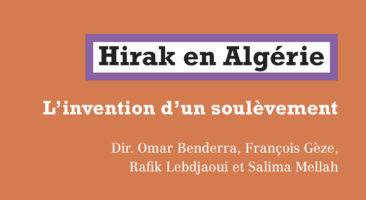Blunkett must decide fate of Algiers suspect
Richard Norton-Taylor, The Guardian (UK); Thursday February 14, 2002
David Blunkett, the home secretary, has to decide by tomorrow whether an asylum-seeker sentenced to death in his absence should be extradited to Algeria.
The case raises serious questions about the role of the crown prosecution service, whose lawyers have been acting for the Algerian government. Its sole evidence against the man is a confession extracted by an alleged witness who was executed after being tortured.
Abdelghani Ait Haddad is wanted by the Algerian authorities in connection with a bombing at Algiers airport in 1992 which killed nine people and wounded 123.
The evidence against him consists of allegations made by Hossein Abderrahim, a member of the Islamic party, the FIS, which had just won elections. He was one of several people arrested after the bombing.
Abderrahim allegedly mentioned Mr Haddad’s name to the police when he was interrogated in connection with the bombing. Abderrahim was executed in 1993. The Algerian government did not mention this in its original extradition request.
The extradition cannot go ahead without the home sec retary’s authority. A spokeswoman for the Home Office said yesterday the case was under « active consideration » and that Mr Blunkett had yet to make a decision.
Government policy, recently confirmed in the case of Al-Qaida suspects wanted by the US, is that no one will be extradited without assurances that they will not face the death penalty.
Last week the Algerian justice minister, Ahmed Ouyahia, visited Britain to put pressure on the
government to take a tougher line towards Algerian refugees and asylum seekers.
Mr Ouyahia was a senior member of the Algerian government in the mid-1990s denounced by human rights groups and the European parliament for sanctioning torture.
Mr Haddad, a businessman, visited France in October 1992, two months after the airport bombing. Despite a request to the French authorities for his return, he was allowed to stay in France for nine years.
In the summer of last year he was informed that his claim for French asylum had been refused and he was told to leave the country. In July Mr Haddad arrived in Britain. He was arrested as he appeared for his asylum interview in Croydon, south London, on November 12.
Although there is no extra dition treaty between Britain and Algeria, the two countries are signatories to the Montreal convention covering airport security. The crown prosecution service used this to pursue the case on behalf of the Algerian government.
Mr Haddad and others were convicted following a military-backed coup after the FIS won the first round of general elections in December 1991. The new government set up emergency courts with no right of appeal.
Interrogation techniques and the use of the death penalty in Algeria have been widely documented by Amnesty International and Human Rights Watch.
Evidence in Mr Haddad’s case which was passed to the defence in January, after repeated requests, comprises what are referred to as « excerpts of the record » of Abderrahim’s interrogation. They include unspecific references to a « network » and a telephone number.
The Algerian government’s request for Mr Haddad’s extradition, to be heard at Bow Street magistrates court in London tomorrow, comes against the background of its claims that Algerian Islamist extremists, including the Armed Islamic Group, have links with the al-Qaida network.

